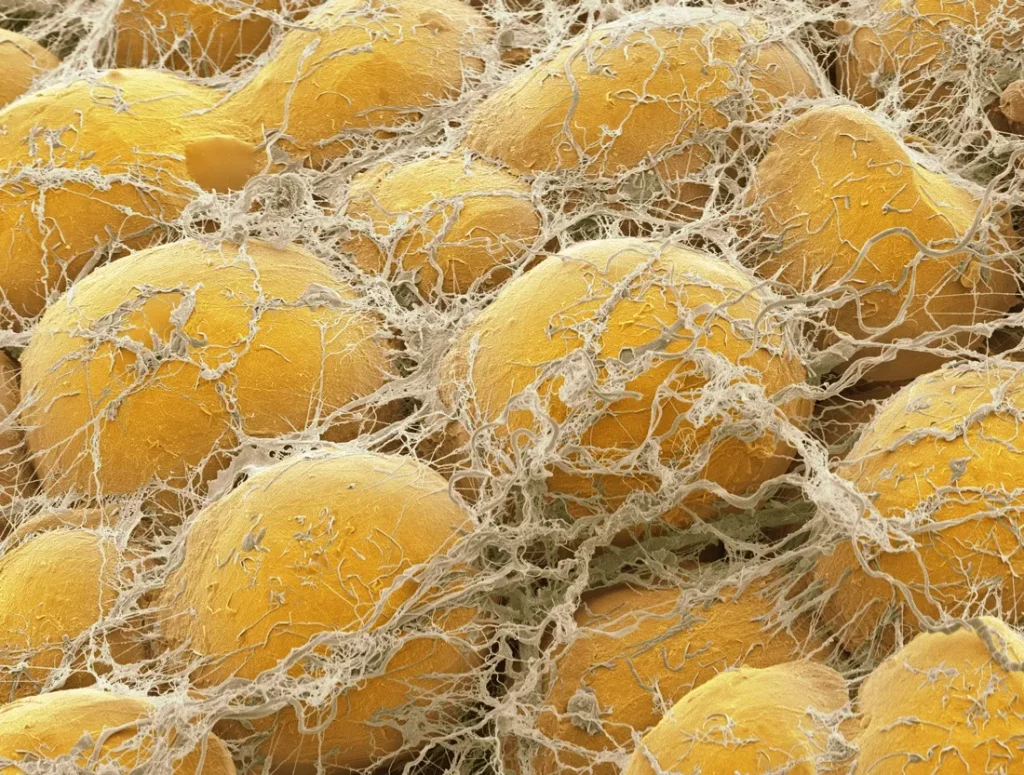
Do Different Types of Cells in Fat Matter in Health Research?
by Paz Garcia
Fat is made up of a variety of different types of cells, including ones that store fat and others that form the immune system.
Researchers from the Department of Twin Research and Genetic Epidemiology investigated the mixture of cells that make up fat in samples from over 1,000 donors.
The work was published in the American Journal of Human Genetics.
Why did they do this research?
While we may not usually think of it in such terms, fat is actually the largest organ in the body that releases hormones.
We know that fat plays a role in the development of various health conditions such as heart disease and type 2 diabetes. Many researchers have therefore focused on studying fat.
Researchers however have largely not considered the proportions of the different types of cells in fat in their analyses.
The TwinsUK team therefore decided to investigate the different types of cells present in fat.
What did they do?
The researchers analysed fat samples collected from 766 twins from TwinsUK and 326 donors from another study.
The team used computational methods to estimate the relative proportions of four different types of cells in each fat sample.
They also looked at whether the proportions of cells were genetically inherited and linked with traits of obesity.
What did they find?
There is a lot of variation between people in the proportions of different cells they have in their fat.
The team found that proportions of cell types in fat is genetically inherited and is linked to body fat distribution.
What does this mean?
Researchers studying the links between fat and health conditions will need to take into account the variety of different cells present in fat. Dr Craig Glastonbury, first author on the study, explained:
“Our results indicate that it is critical to account for cell-type composition on a range of standard analyses.”
In addition, the findings could help us understand why some people are at greater risk of certain conditions. Dr Kerrin Small, who worked on the study, explained:
“The results suggest that some people are genetically predisposed to have more cells that store fat, which could lead to greater fat accumulation and greater risk of conditions like heart disease and type 2 diabetes.”
What’s next?
In their paper, the researchers say that more research will be needed to understand the relationship between genetics, cells in fat and the impact on health and disease.
